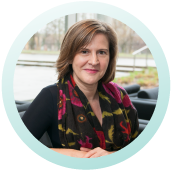
Annual public meeting 2022

Mentorship as a winning element in research and economic development
How inspiring by example is a precious part of the educational process and essential to recruiting and developing the next generation of researchers.
At this online event, we asked “What are the key ingredients to inspire the next generation of researchers to succeed?” Attendees heard how the bond between researchers and their students is critical to developing a highly skilled workforce in areas such as health and electric-car batteries.
The panel included a conversation with four distinguished researchers:
Marie-Josée Hébert
Vice-Rector of Research, Discovery, Creation and Innovation, Université de Montréal
Alexandre Brodeur
Research assistant, Centre de recherche du CHUM
Jeff Dahn
Principal Investigator, NSERC/Tesla Canada Alliance Grant, Dalhousie University
Tina Taskovic
PhD candidate in chemistry, Dalhousie University
moderated by
Roseann O’Reilly Runte
President and CEO of the CFI
Officials also reported on the 2021-22 activities at the CFI.
Our annual public meeting keynote panel
Featured speakers

Vice-Rector of Research, Discovery, Creation and Innovation, Université de Montréal | Marie‑Josée Hébert completed her postdoctoral training at Brigham and Women’s Hospital, an affiliate of Harvard University. She is a nephrologist-transplant physician and researcher at the Centre hospitalier de l’Université de Montréal and professor in the university’s Faculty of Medicine. She holds the Shire Chair in Nephrology, Renal Transplantation and Regeneration. Her work has led to the discovery of new mechanisms of intercellular communication and the characterization of new types of antibodies involved in organ transplant rejection and renal failure. Hébert is a Canadian Academy of Health Sciences Fellow and recipient of the 2015 Dr. John B. Dossetor Research Award and the 2016 Medal for Research Excellence, both awarded by the Kidney Foundation of Canada. Since November 2015, she has served as Vice-Rector of Research, Discovery, Creation and Innovation at the Université de Montréal. |

Research assistant, Centre de recherche du CHUM | Alexandre Brodeur is a master’s student in molecular biology at the Université de Montréal. His work focuses on mechanisms of intercellular communication following blood vessel damage. His research has found that vascular cells very precisely orchestrate the release of specific DNA fragments that are picked up by neighbouring cells and alter vascular function. These findings open up new perspectives for understanding the mechanisms of vascular dysfunction that lead to the development of cardiovascular disease and renal failure. It may come as a surprise, then, to know that his journey to a career in science has not exactly followed a conventional path. After initially dropping out of college, he enrolled in a co‑op program at the Université de Sherbrooke to reignite his passion for biology. He is now pursuing graduate studies and is set to publish his findings in a scientific journal. |

Principal Investigator, NSERC/Tesla Canada Alliance Grant, Dalhousie University | Jeff Dahn is recognized as one of the pioneering developers of the lithium-ion battery that is now used worldwide in laptop computers, cell-phones and electric vehicles. He maintains one of the largest and most advanced university laboratories in the world devoted to studies of all aspects of lithium-ion batteries. He and his research team developed High Precision Coulometry and other advanced diagnostics, which allow decades-long lifetimes of Li-ion cells to be ranked in experiments that last only a few weeks. In 2019, he and his team reported on the so-called “million mile battery” proposed for electric vehicles and grid energy storage. In 2020, he was appointed an Officer of the Order of Canada. He is currently Principal Investigator for the NSERC/Tesla Canada Alliance Grant at Dalhousie University and Professor of Physics and Professor of Chemistry. |

PhD candidate in chemistry, Dalhousie University | Tina Taskovic is a PhD student at Dalhousie University, where she forensically examines spent batteries with the goal of lengthening their life. She is co-founder of the Halifax chapter of Women in Renewable Energy, which is an organization aimed at advancing the role and recognition of women in the energy sector. She took second place in Atlantic Canada’s 2022 Falling Walls Lab competition for her three-minute pitch that proposed a longer lifetime for lithium-ion batteries as a way to decarbonize our energy infrastructure. In November, she competed in the Berlin finals for that competition. She is an active leader in Dalhousie’s Green Chemistry Initiative, which, among other things, focuses on advancing the philosophy of green chemistry. |
Moderator

President and CEO of the Canada Foundation for Innovation | Read Dr. Runte's bio |

